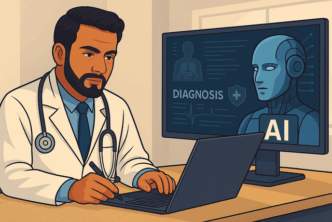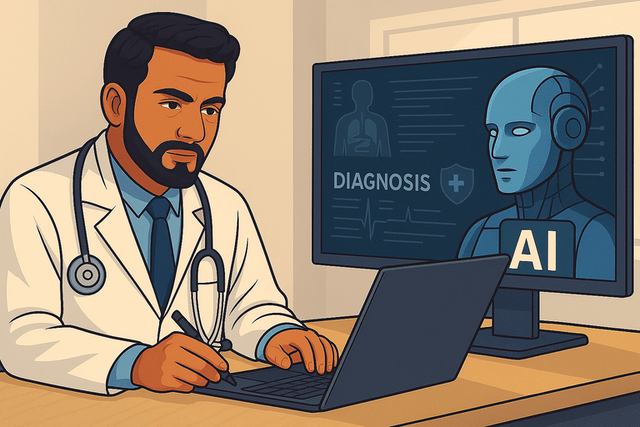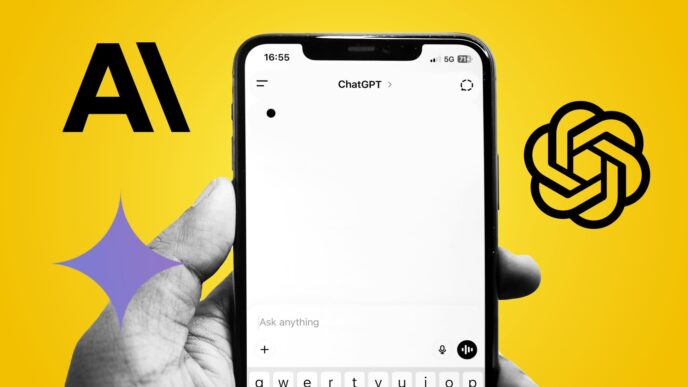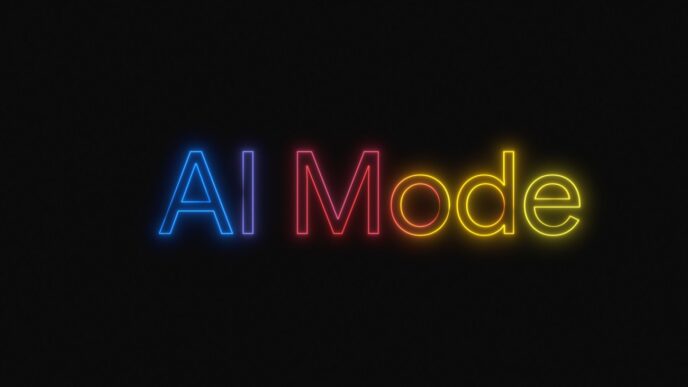AI diagnostic tools are beating doctors—but acceptance is tanking
New data rips open a huge gap between AI’s clear clinical power and the trust doctors and patients give it.
In the US, human doctors nail diagnoses about 89% of the time. Strokes? That accuracy drops to 83%. India sees even lower rates, 76-89% depending on area and disease. Meanwhile, AI diagnostics crush those numbers:
- ChatGPT hits a median diagnostic accuracy of 92%, while doctors using standard methods lag at 73.7%.
- AI tools match expert tumor board recommendations 93% of the time.
- Google’s medical AI spots lung cancer nodules with 94% accuracy—far better than the 65% from radiologists.
- Breast cancer AI scores 90% sensitivity versus humans’ 78%.
- Trials show that doctors aided by large language models (LLMs) outperform those flying solo.
- Another study reports an AI system diagnosed correctly 80% of cases and cut consultation time by nearly half.
- Intelehealth’s own LLM testing finds correct differential diagnoses 89% of the time.
Bottom line: AI will only get smarter and more accurate.
The problem? Doctors and patients fight trusting AI.
A recent AMA report finds 66% of doctors use AI now, up 78% from last year. But 25% still fear AI more than embrace it. Many resist advice from AI, clinging to control and fearing obsolescence. At the same time, some worry docs will blindly rely on AI because it’s easier—a bad tradeoff.
Patients aren’t much better. Pew research shows 60% of Americans distrust providers who lean on AI, and 70% want a human doctor making the final call—even if AI slips up less. A 2024 study in BMC Medical Ethics found 96% of patients demand AI be monitored closely by doctors, voicing concerns over privacy and lost human touch.
60% of U.S. adults say they would feel uncomfortable if their healthcare provider relied on AI for diagnosis and treatment recommendations.
70% want a human doctor deciding their care, even if AI makes fewer mistakes.
A 2024 study in BMC Medical Ethics found that 96% of patients insist AI must be under continuous physician control, with many expressing concerns about data privacy and the loss of human touch in medical care.
Meanwhile, the places that need AI most—low- and middle-income countries (LMICs)—face a double whammy. They suffer from critical doctor shortages and poor care quality, costing nearly 9 million lives yearly and $1.6 trillion in lost productivity globally. AI could scale much-needed diagnostics there, but both tech and cultural resistance stand in the way.
In short: brilliant AI tools risk going unused because humans won’t embrace them. The race to improve healthcare depends on closing this trust gap fast.














